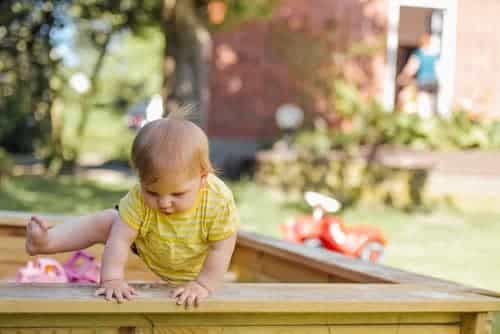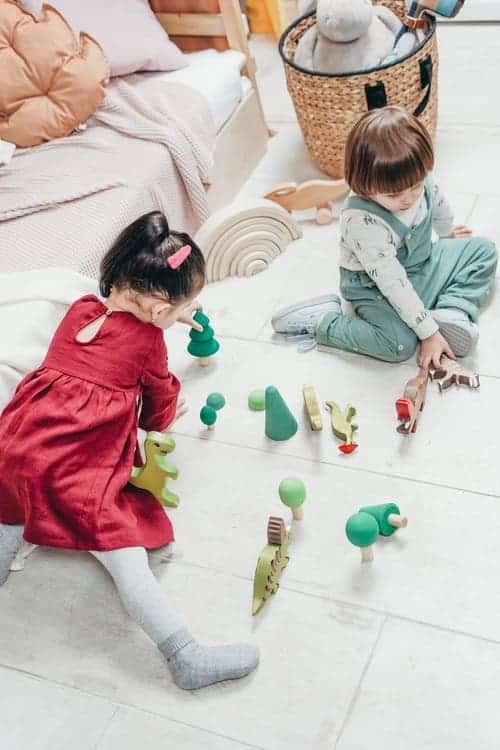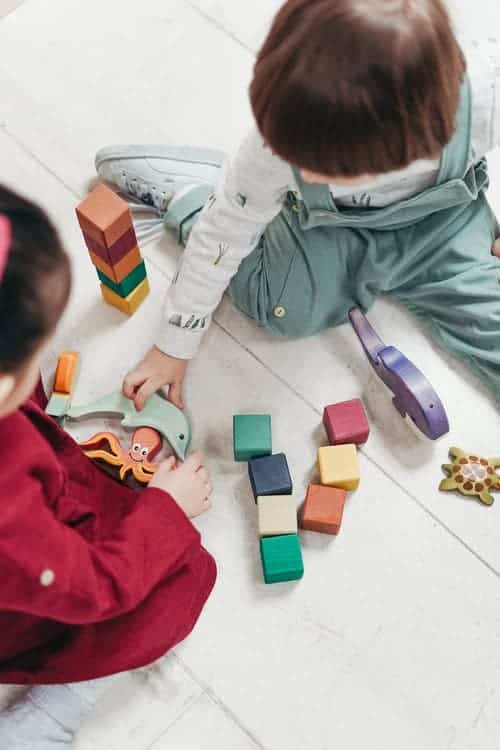Play is about having fun, whether it be an organised activity or unstructured. But play is much more than having fun, its a way that they make sense of the world, themselves and others. As they grow and develop they will gradually move through the different stages of play. The stages of play are outlined below:
Early play tends to be solitary, where the child is happy to be on their own and direct their own play without needing to be concerned about others. You may find at this stage your child might not notice or be interested in the other children playing around them because they are fully engrossed with their own play and discovery.

At this stage children play side by side without interaction. They might mimic the others child's play but they are still separate. They may watch other children and make some attempts to make contact. Towards the end of this stage, they may begin to cooperate with other children, e.g. share toys.

This is the stage where children are beginning to be able to interact with each other. They are able to play together, share toys and take turns in games. The increasingly co-operative nature of the play provides opportunities to practice using language for different purposes including arguing, questioning, explaining and directing what others do.

There is a clear relationship between language and play. To learn more about the relationship and how you can support this process of learning click the link on the sidebar.
Talking Point have created a checklist which describes the typical stages of speech and language development, including social skills and play. Click here to learn more.

A Mackman Group collaboration - market research by Mackman Research | website design by Mackman